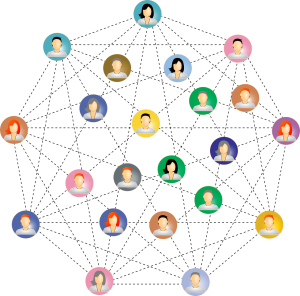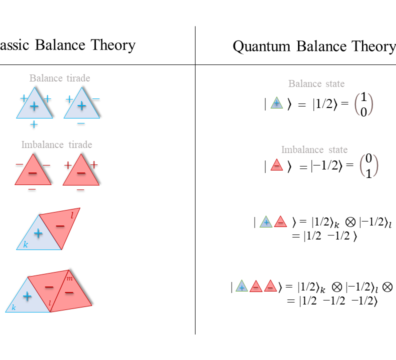Welcome to the
Complex Networks Labs
where we explore the intricate world of complex networks.
Navigating Complexity, Unraveling Networks. Connecting Nodes, Illuminating Pathways. From Nodes to Networks: Mapping Complexity, Predicting Futures. |
What is Complex Networks?
Complex networks serve as models for real-world systems by utilizing sets of nodes and edges to represent elements and their interactions, respectively. These systems encompass a wide array of examples such as electric power grids, airlines, social networks, the World Wide Web, the Internet, and biological networks. Predicting the collective behavior of these networks solely from their individual components is often infeasible. However, comprehending the mathematical framework governing these systems enables us to forecast and potentially regulate their behavior and evolution. Our research delves into employing mathematical and computational tools to delve into these systems. Specifically, we aim to model, analyze, and predict their structures and dynamic evolution, while also addressing algorithmic challenges posed by their vast scale. Networks permeate both natural and technological realms, serving as a crucial framework for understanding complex systems. Ecological systems, the human brain, and various communication and transportation systems exemplify this ubiquity. Through network studies, we uncover fundamental laws and patterns that underlie a diverse array of networks, spanning nature and society. Our efforts focus on pioneering methodologies to reveal the organizational structure and functional patterns within complex networks, which have wide-ranging applications. Alongside data-driven analyses, we actively contribute to international endeavors aimed at advancing our foundational mathematical understanding of networks.

Our research explores the fascinating intersection of social media and collective identity. We delve into the influence of automated accounts, or “bots,” on online discourse. These bots can mimic human behavior, but some, known as social bots, have a more concerning purpose: swaying public opinion. To identify these social influencers, we utilize a powerful tool called Botometer. Once unmasked, we analyze the content these bots spread to understand their impact on online conversations and the collective identity they help shape.
Brain networks

Network neuroscience is an attempt to take neuroscience from the study of individual brain units to a network-level investigation. This is promising since the brain is one of the most complex systems, comprising nearly 10 billion neurons connected by about 100 trillion synapses. Thus, as a complex network, interactions among brains’ units are nontrivial for sure. Here our goal is to better understand and computationally model these interactions. Join us on our journey to discover more about the surprising interactions underlying the beauty of complex brain networks!
Quantum Complex Network

Quantum complex networks are networks in which the nodes, links or other parameters of the network are quantum states. These networks have been identified as a potential solution to non-locality problems, parallel processing that exists in many real phenomena such as brain networks, finance, social and biology, etc. The collective behavior that arises as a result of this entanglement and the systemic risk arising from it in financial market networks are two key areas of interest. Furthermore, quantum mechanics has been employed to develop secure communication channels that are resilient to hacking. Quantum communications present the possibility of providing secure solutions at an enterprise-scale. This entanglement results in the emergence of new quantum transitions within the system, which can be identified through this lens.
Theoretical Complex Systems

When we say a complex system, we mean that there is so much information in this system that the usual models derived from reductionism, do not work perfectly. Typically, different models are presented to describe these systems depending on their scale, which predicts the behavior of this system at that scale. Social networks are also known as complex systems, which means that the models presented in this branch can not fully explain the real social systems. However, scientists working in this field have not given up trying to better understand these systems and are trying to build and improve their cognitive methods.

